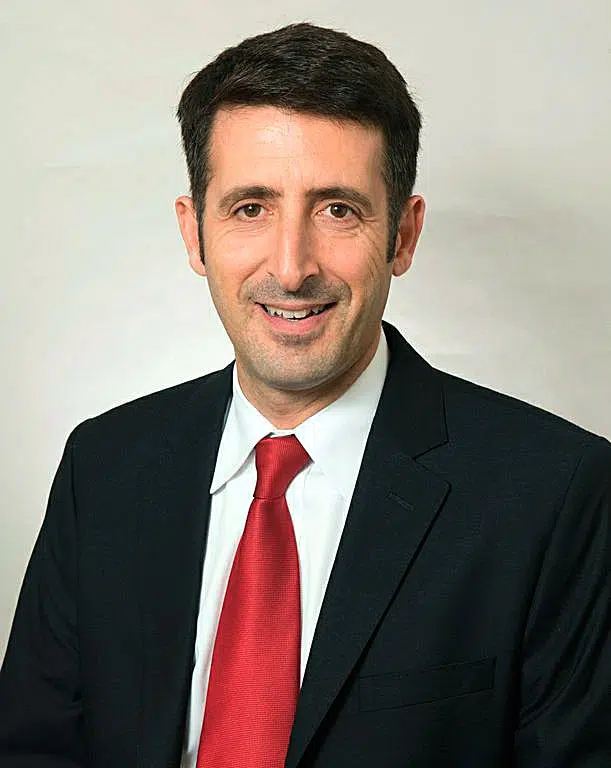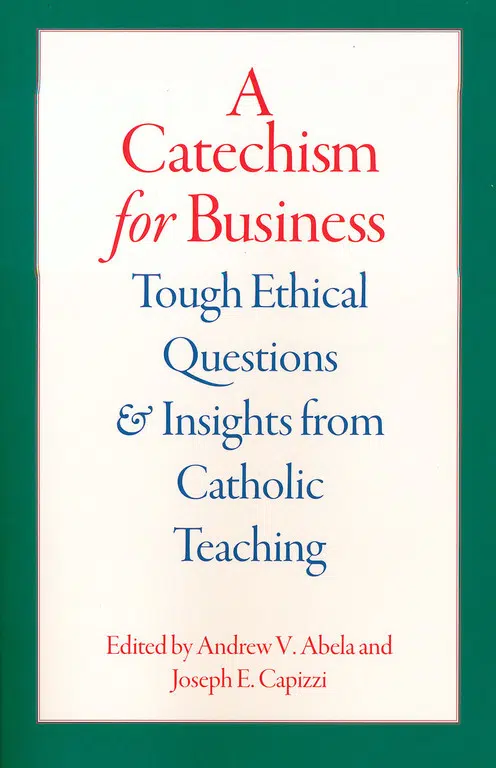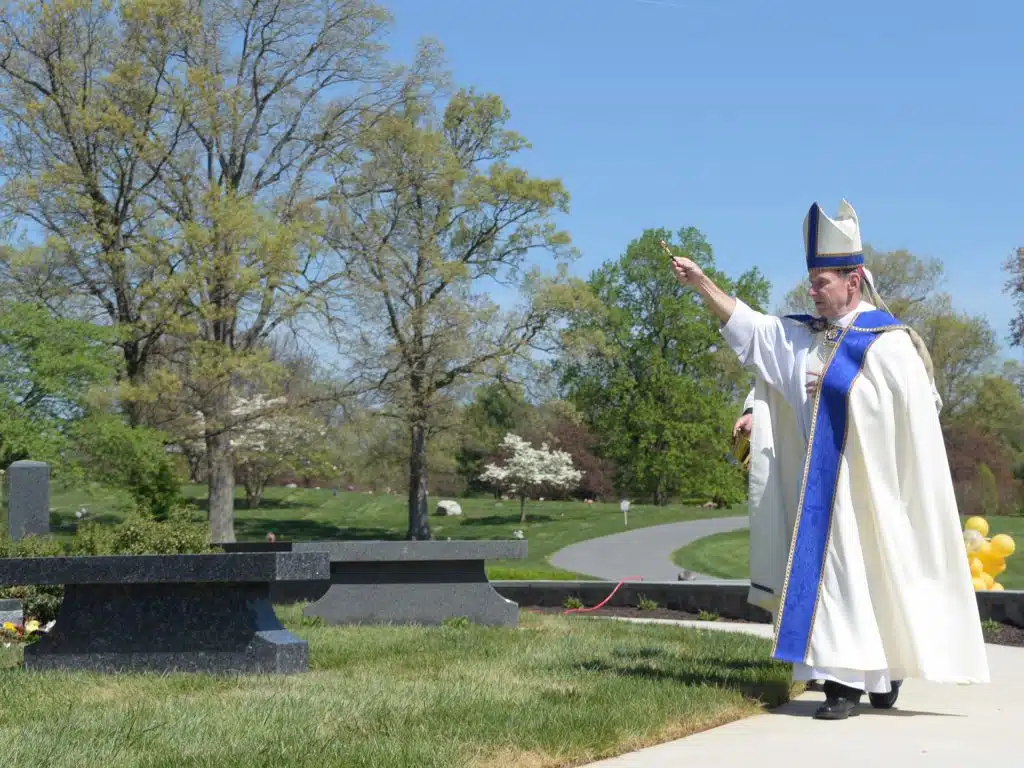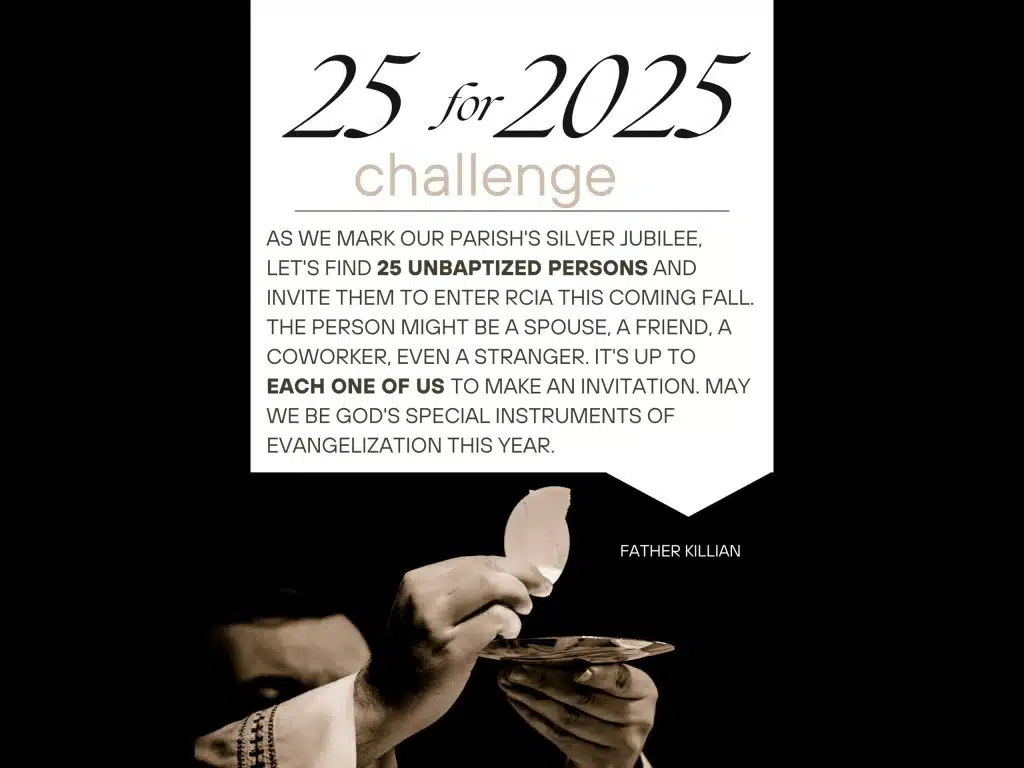Andrew V. Abela has heard all the jokes about business ethics
– two popular ones being it’s an oxymoron, and it’s the
shortest doctoral dissertation in the world. But Abela, who
teaches at Catholic University in Washington, said ethics and
its relationship to Catholicism is no laughing matter.
Abela is the author of numerous business articles and several
books. He and co-editor Joseph E. Capizzi have collected
pertinent church teachings on business ethics in a new book,
A Catechism for Business – Tough Ethical Questions &
Insights from Catholic Teaching.
Abela, 48, was born on the island of Malta where his family
can trace their roots back 1,000 years.
Although he comes from a Catholic family, Abela said he
hasn’t always been Christian.
“I lost my faith in high school,” he said. “I was effectively
an atheist.”
When asked the reason for this falling out, Abela said that
Malta is very public in its expression of faith with
beautiful churches, processions and feasts. But he said that
schools on the island did not match the religious intensity
of the rest of the country.
“At school we experienced a ‘1970s catechesis’ that said
almost nothing about Christ, about virtue, about the glorious
vision of our Catholic faith,” said Abela.
His family moved to Toronto when he was 17. After high
school, he earned a bachelor’s degree from St. Michael’s
College at the University of Toronto. He said the experience
at the Catholic school helped draw him back to the faith. It
was the example of students at the school and one very close
friend, Peter, that helped him return to the faith.
Abela calls this his “reversion.” He said his return to the
faith of his youth and family reminded him of G.K.
Chesterton’s book Orthodoxy, where Chesterton said he’d like
to write a book about a sailor who gets lost and thinks he’s
in the South Seas but actually had returned to his homeland.
“What could be more delightful than to have in the same few
minutes all the fascinating terrors of going abroad combined
with all the humane security of coming home again?”
Chesterton wrote.
After graduating in 1987, Abela worked for about four years
as a brand manager for Proctor & Gamble in Canada.
He decided to pursue a master’s of business administration at
the Institute for Management Development in Switzerland where
he continued to rediscover his faith.
When he returned, he went to work for the marketing
consulting firm McKinsey and Co.
While on a business trip to New York and staying at the
Waldorf Astoria Hotel, he walked past St. Patrick’s Cathedral
every day going from his hotel to the office. A colleague
suggested he should stop in for Mass.
He did, and one day Cardinal John J. O’Connor was celebrating
Mass.
“I was so taken by his preaching,” he said, that he had
thoughts of becoming a priest.
He did not enter the seminary, but he quit his job at
McKinsey after he found out he was expected to lay off a
large number of people. He had a sailboat, so he left Toronto
and sailed to Washington, D.C.
He met and married Kathleen in 1996 and moved back to
Toronto, where he worked again for McKinsey.
In 2002, he joined the faculty of Catholic U. where he is now
the dean of the School of Business and Economics. In 2003, he
earned a doctorate from the University of Virginia Darden
School of Business in Charlottesville.
In the introduction to their new book, Abela and Capizzi said
that the Catholic church does not profess any expertise in
business. The church offers principles for reflection so that
business people can act ethically in a business situation.
“The purpose of this book, therefore, is to collect and make
accessible church teaching to facilitate that reflection,”
they wrote.
The book poses questions such as, “Is it morally acceptable
to make a profit?” The answer to this question from Pope
Benedict XVI, who spoke on profit in 2007, is “Naturally,
profit is legitimate and, in just measure, necessary for
economic development.”
Some questions are a bit thornier. “Do workers have the right
to unionize?”
The answer is from Blessed Pope John Paul II in his
encyclical “Centisimus Annus” issued on the 100th anniversary
of “Rerum Novarum” (on capital and labor): “To achieve these
goals there is still need for a broad associated workers’
movement, directed towards the liberation and promotion of
the whole person.”
The book asks and answers tough questions about producing and
selling birth control products, and involvement in the
abortion industry, and in the production of armaments.
Abela said that there is a link between morality and a strong
economy.
“A flourishing economy depends on a virtuous citizenry,” he
said, adding that people need to work hard, pursue new
opportunities and trust each other. Without virtue, an
economy is run only through enforcement.
“(With enforcement) you get mere compliance, not creativity
or enthusiasm,” he said.




